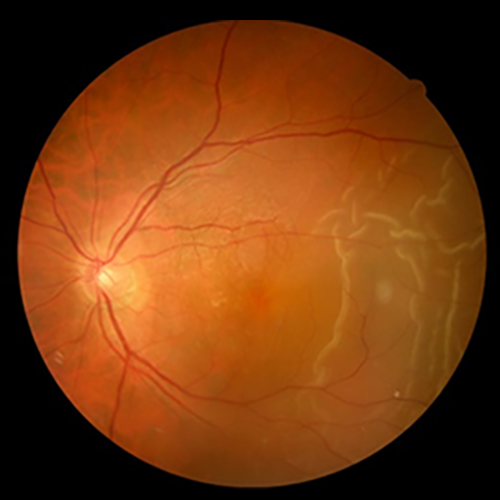Warning: This website describes our product, which has not been approved or cleared for marketing by the U.S. Food and Drug Administration and is considered an investigational device.
About Retina Surgery
More than 1.8 million retina surgeries, or vitrectomies, are performed every year to treat serious, blinding eye diseases, such as retinal detachments, macular holes, epiretinal membranes, vitreous hemorrhage, diabetic retinopathy, and other ocular conditions. Given the aging population, the number of surgeries is expected to grow at a rate of 6% per year. Often at the end of the surgery, special types of medical gases or silicone oils are left in the eye to seal, or to “tamponade,” the retinal surface.
About Existing Retinal Tamponade
The use of medical gases and oil after retina surgery was developed in the 1970s and 1980s. Although the use of these materials can be critical to the success of retina surgery, their limitations create significant burdens for patients. Patients with gas must position for days to weeks after surgery, cannot see clearly while gas is in their eye, cannot fly for weeks to months until the gas is completely gone, and the gas is poorly effective when the retinal problem is in the inferior half of the retina.
Silicone oil can be used when positioning is not possible or air travel is needed but it requires a second surgery for removal and can be associated with many complications, including corneal toxicity and high eye pressure which can lead to glaucoma.

Benefits of PYK–2101
PYK-2101 is designed to transform the patient experience after retinal surgery.
No More
Additional Surgery
No More
Face Down Positioning
No More
Blurry Vision
No More
Travel Restrictions
Get Back
to Work And Life
Get Back
to Living